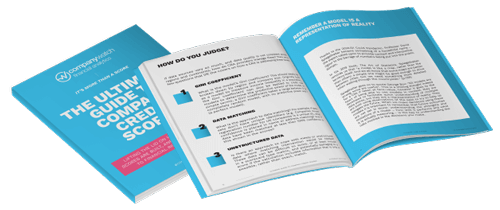5 Steps to Effective KYC Compliance

“Know Your Customer” or KYC is quickly becoming more demanding and sophisticated across the finance industry, and for good reason. KYC checks can assist a great deal in making informed business decisions. This can, in turn, help companies do business with greater confidence.
Over the years, hundreds of companies have trusted Company Watch to conduct diligent KYC checks. But what exactly is the process behind getting to know your customer? And how do you ensure that your KYC checks are effective?
In this blogpost, we cover:
- What is KYC (“Know Your Customer”)?
- Understanding the KYC checks process
- 5 key steps to effective KYC compliance
What is KYC (Know Your Customer)?
KYC is the process of conducting specific checks to get to the bottom of two things:
- The identity of a company or organisation
- Whether or not a company or organisation is acting or has acted illegally
Typically, businesses will conduct KYC checks before entering into a new partnership with a company. Many will also run KYC checks periodically throughout the partnership. The frequency of this will depend on how high-risk the customer or transaction is.
Effective KYC checks are key to maintaining the integrity of a business and avoiding financial risk. If done right, KYC checks can safeguard a business against fraud, corruption, money laundering, and supply chain risk.
Understanding the KYC checks process
The goal with KYC checks is to ensure thorough due diligence gets completed so that you can do business with ease. There are a variety of KYC checks that businesses can conduct, depending on the company they are looking at.
Some examples include:
- Identity verification
- Address verification
- Source of funds verifications
KYC checks, especially comprehensive ones, can be time-consuming. But doing your due diligence is necessary, even if it takes time out of other business activities. To make things quicker, Company Watch utilises a number of automated checks and triggers to conduct your KYC checks for you. Find out more about KYC checks with Company Watch.
5 key steps to effective KYC compliance
Step 1: Customer identification and risk assessment
When conducting your KYC checks, it is important to begin with gathering information about a company’s identity. This includes verifying documents such as government IDs, proof of addresses, and registers of directors and shareholders. This shows if the company is legitimate and eliminates any base-level risks that might be present.
With this base-level risk assessment at hand, it is time to delve into in-depth risk mitigation. This leads us to the second step - Customer Due Diligence.
Step 2: Customer Due Diligence (CDD)
Customer Due Diligence is the next step when conducting KYC checks. For some companies and individuals, base-level identification may be enough. Especially if you have worked with them in the past. However, to get a better understanding of a customer’s trustworthiness, Customer Due Diligence is a must.
This step is where you gather information about your customer’s beneficial ownership and source of funds. Beneficial ownership determines who controls the customer entity. Sources of funds are necessary to show that the customer is able to pay up legitimately.
When dealing with individuals e.g. in lending deals, customer due diligence may include:
- Occupation
- Types of transactions made
- Activity patterns
Step 3: Enhanced Due Diligence (EDD)
Businesses must conduct Enhanced Due Diligence for high-risk customers. High-risk customers are identifiable after the first two steps of KYC checks are complete. Enhanced Due Diligence helps you identify and weed out red flags, including potential illegal activity, that might not come up during your initial KYC checks.
In this step, you may have to look at court records and corporate registries to uncover these hidden red flags. You might also need to re-verify certain identity documentation. This helps identify issues that the previous step might not have picked up.
Step 4: Monitoring
KYC checks are not limited to simply the initial onboarding process. It is something that must be done periodically throughout the partnership. Circumstances can change at any point and it is crucial to be mindful of this.
Activities like money laundering, fraud, and terrorist financing are just some of the factors to monitor regularly. If any changes occur, make sure to let relevant parties know so that contract changes or cancellations can be made accordingly.
Step 5: Business information solutions
Obtaining relevant information and analysing it for red flags can be a tricky and time-consuming task. Moreover, getting access to court records and corporate registries might require additional licences, leading to further delays.
Company Watch is a business information provider that takes care of your KYC checks for you, from start to finish. We comb through over 198m corporate records and 600bn+ archived web resources so you can be sure no stone has been left unturned. Our EDD reports are in-depth and easy to navigate. You can view a sample EDD report here.
Key takeaways
- KYC checks allow you to verify the identity of your customer and determine if they have engaged in any illegal activities.
- Customer identification and customer due diligence are the initial steps to effective KYC compliance.
- High-risk customers require Enhanced Due Diligence (EDD), which includes an assessment of court records and corporate registries.

